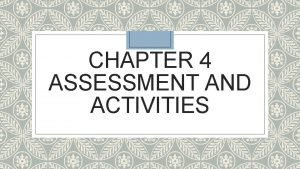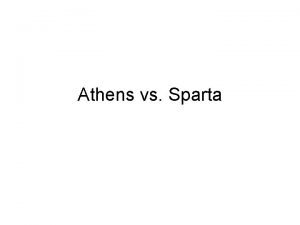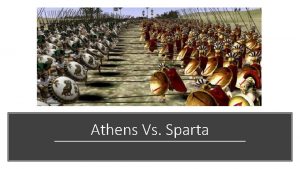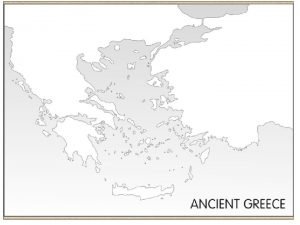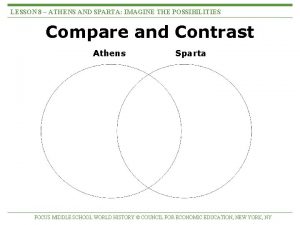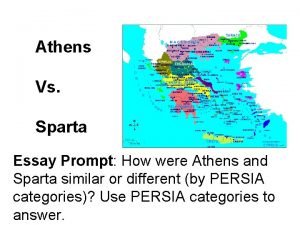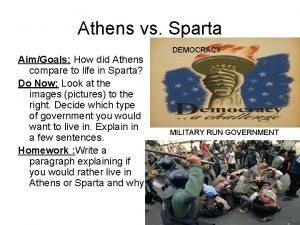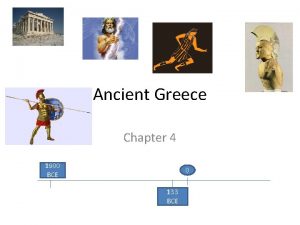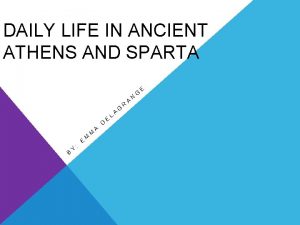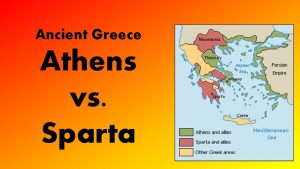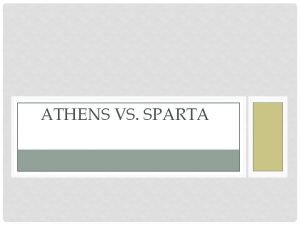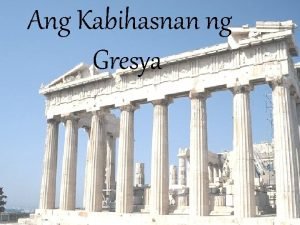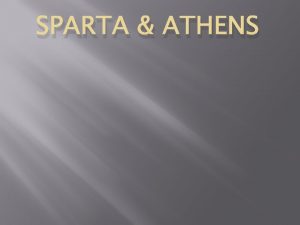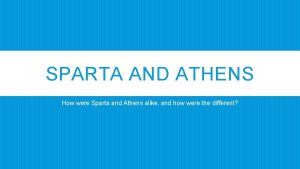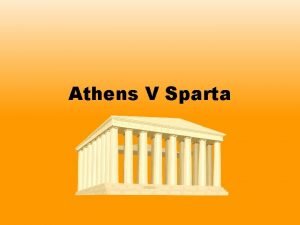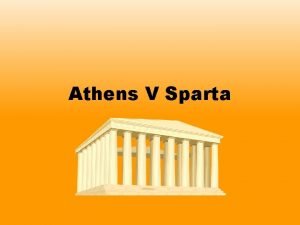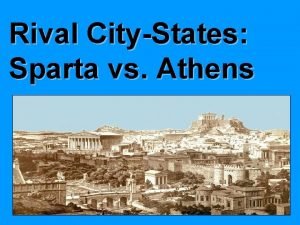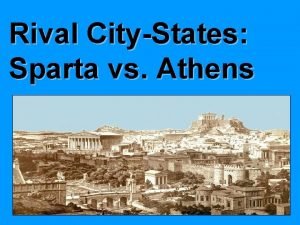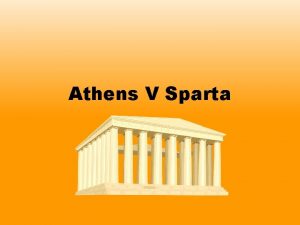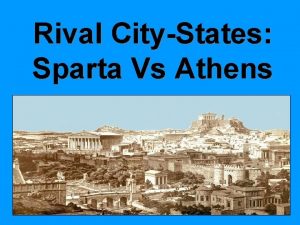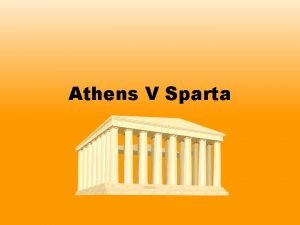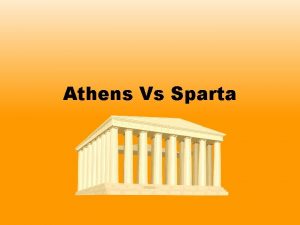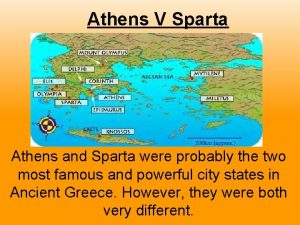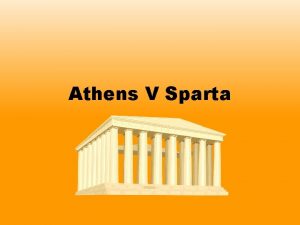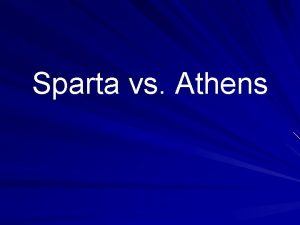Sparta and Athens Tyrants Rule Common people are


















- Slides: 18

Sparta and Athens

Tyrants Rule • Common people are very unhappy in Greece • Farmers – Lost lands when they couldn’t pay off loans and interest to the nobles – Some had to sell themselves into slavery – All lost citizenship when they lost their land • Merchants and Artisans – Many wealthy from increased trade – Couldn’t participate in government didn’t own land

Tyrants • Supported for the following reasons – Merchants wanted to be in government, tyrants promised to include them – Hoplites- mostly small farmers with huge debts – Tyrants built new markets , temples and walls to protect the citizens • Ruled for a small time, promises don’t come true , people want more participation in government • City states become oligarchies or democracies


Who are the Spartans • Descendants of the Dorians who invaded the Peloponnesus • Militaristic society- proud to serve and die for their city-state. Very disciplined society. • Conquered all neighbors and enslaved them(helots) • Afraid Helots would rebel, so they firmly controlled the people of Sparta

Military service Boys taken away at age 7 Treated harshly to toughen them up Age 20 – men enter regular army for 10 years Age 30 – return home, but continue training and fighting until age 60 • All would die before they would surrender • •


Spartan Women • Trained in sports ; running, wrestling and throwing javelin • Kept fit to become healthy mothers • Wives were at home while men trained in military • Women of Sparta had much more freedom than other Greek women


Spartan Government • 2 kings who headed the Council of Elders • Council of elders- 28 citizens over the age of 60 – Presented laws to the assembly • Assembly – all men over the age of 30 – Voted on laws presented by the council – 5 Ephors were chosen from the assembly • Enforced laws • Managed tax collection

Spartan control • To keep anyone from questioning the Spartan way they: – Restricted foreign visitors – Banned outside travel, except for military reasons – Discouraged citizens from studying the arts or literature


Athens • Education was very important – boys had one teacher for reading, writing, and arithmetic – 2 nd teacher for sports – 3 rd teacher for singing and playing the lyre – This created well rounded Athenians with good minds and bodies – Girls- stayed at home and were taught by mothers to spin, weave and cook – Only wealthy learned to read, write and play lyre

Athenian Government Oligarchy to Democracy • 600 B. C. – Land owning nobles seized power from the kings – Nobles were the ruling class and formed an Assembly, but it had few powers – Athenians began to rebel – farmers owed money, some sold themselves into slavery – Demanded an end to debts and land for the poor – One trusted man- Solon comes to power

Solon’ s Rule • Cancelled all farmers debts • Freed those in slavery • Allowed all male citizens to participate in Assembly and law courts • Council of 400 wealthy citizens wrote laws, but Assembly must approve them • After his rule 30 years of turmoil

564 B. C. Peisistratus • Won support of poor and farmers • Divided large estates among landless farmers • Loaned money to poor people • Gave poor jobs building temples and public works

508 B. C. Cleisthenes • Reorganized the Assembly to play a governing role • All male citizens belonged to the Assembly • Assembly could debate, hear court cases and appoint army generals

Cleisthenes • Council of 500 citizens – Proposed laws – Dealt with foreign countries – Oversaw the Treasury – Council was chosen each year by a lottery • Women, foreign born men and slaves were still excluded from government
 How was democracy expanded during the age of pericles
How was democracy expanded during the age of pericles Mikael ferm
Mikael ferm How was sparta different from athens
How was sparta different from athens Compare sparta and athens
Compare sparta and athens Sparta vs athena
Sparta vs athena Adriatic sea ancient greece map
Adriatic sea ancient greece map Compare sparta and athens
Compare sparta and athens Philosophy of physical education in greece
Philosophy of physical education in greece Imagine sparta
Imagine sparta Athens and sparta comparison chart
Athens and sparta comparison chart Sparta essay
Sparta essay Compare contrast athens and sparta
Compare contrast athens and sparta Tiber river in rome
Tiber river in rome Daily life in ancient athens
Daily life in ancient athens Athens and sparta primary sources
Athens and sparta primary sources Athens geography
Athens geography Athens vs sparta differences
Athens vs sparta differences Spartans
Spartans Ang pamayanan ng sinaunang gresya
Ang pamayanan ng sinaunang gresya
